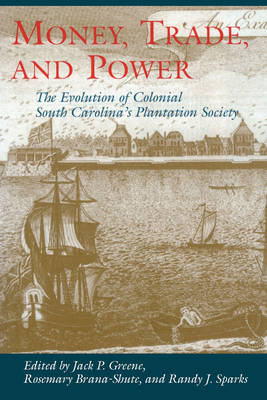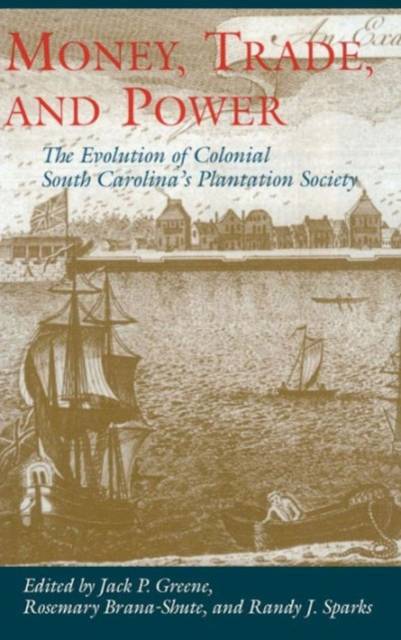
- Retrait gratuit dans votre magasin Club
- 7.000.000 titres dans notre catalogue
- Payer en toute sécurité
- Toujours un magasin près de chez vous
- Retrait gratuit dans votre magasin Club
- 7.000.000 titres dans notre catalogue
- Payer en toute sécurité
- Toujours un magasin près de chez vous
Money, Trade, and Power
The Evolution of Colonial South Carolina's Plantation Society
Description
Examines the economic and cultural development of England's most British colony
Reflecting the burgeoning interest of colonial historians in South Carolina and its role as the economic and cultural center of the Lower South, Money, Trade, and Power is a comprehensive exploration of the colony's slave system, economy, and complex social and cultural life.
The first six chapters of this essay collection focus on the formative decades of South Carolina's history, from 1670 through the 1730s. Contributors Meaghan N. Duff, Bertrand Van Ruymbeke, and Gary L. Hewitt explore the colony's early settlement. R. C. Nash, Stephen G. Hardy, and Eirlys M. Barker investigate the rapidly expanding economy.
Turning to the colony's reliance on slave labor, William L. Ramsay analyzes the institution and abandonment of Indian slavery; Jennifer Lyle Morgan examines the reproductive capabilities of slave women; and S. Max Edelson looks at the distinctive social position of skilled slaves. Robert Olwell considers how South Carolina public officials adapted the office of justice of the peace to the needs of a slave society, while Matthew Mulcahy shows how calamities of fires and hurricanes exacerbated the problem of slave control.
Finally, Edward Pearson describes the ways in which South Carolina's emerging elite asserted their new status; G. Winston Lane and Elizabeth M. Pruden review the surprising economic independence of women; and Thomas Little examines the colony's religious life and spread of evangelicalism.
Spécifications
Parties prenantes
- Editeur:
Contenu
- Nombre de pages :
- 416
- Langue:
- Anglais
- Collection :
Caractéristiques
- EAN:
- 9781570033742
- Date de parution :
- 31-10-01
- Format:
- Livre relié
- Format numérique:
- Genaaid
- Dimensions :
- 160 mm x 238 mm
- Poids :
- 857 g






